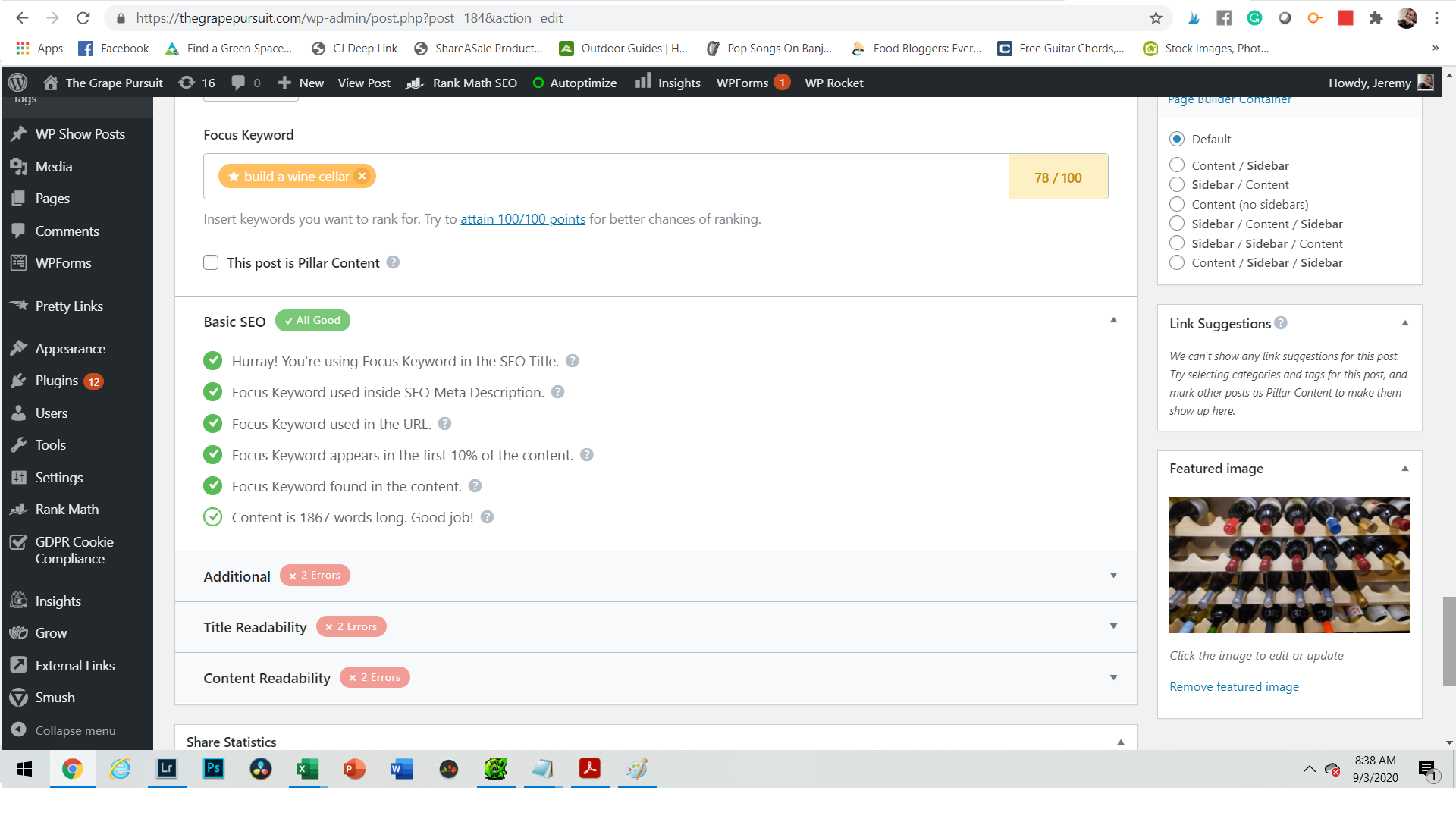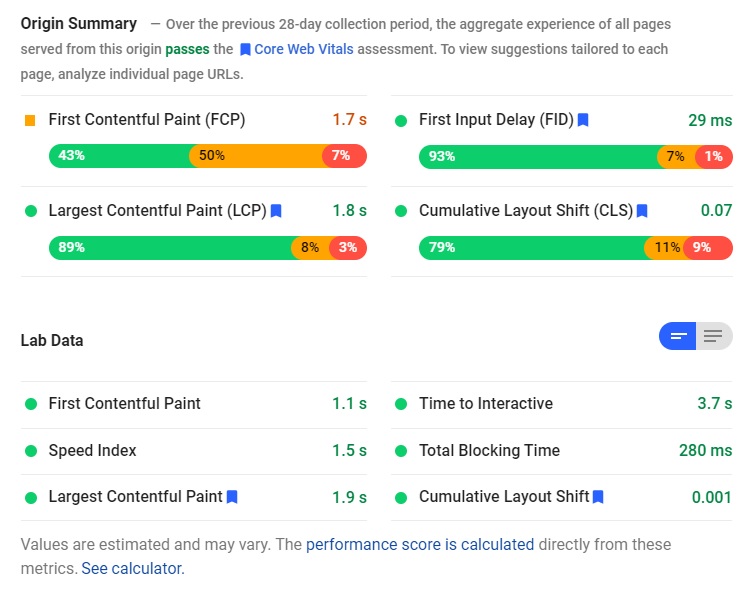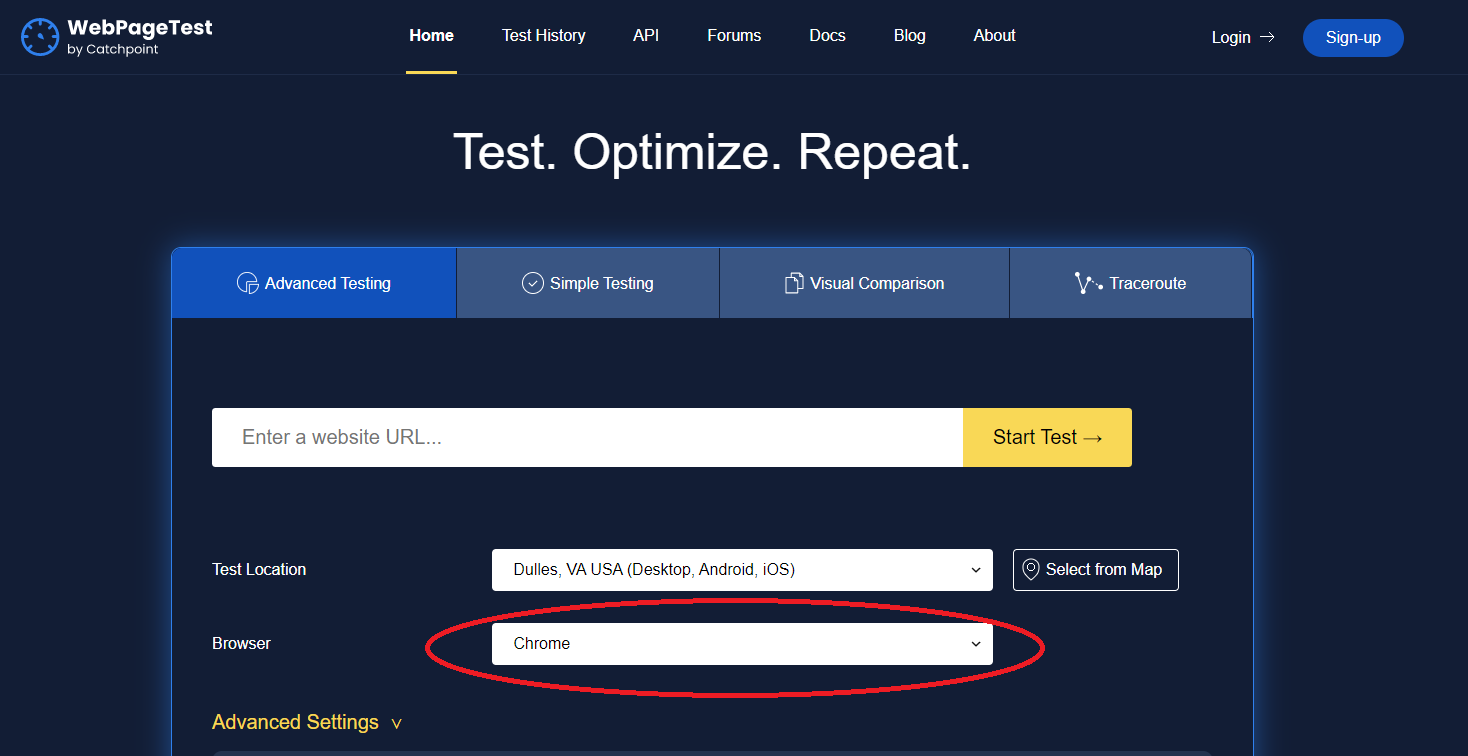Published by Jeremy. Last Updated on November 26, 2023.
Disclaimer: This Week in Blogging uses demographic data, email opt-ins, and affiliate links to operate this site. Please review our Terms and Conditions and Privacy Policy.
We'll be the first to admit, there is a lot of bad blogging advice out there. We've likely been guilty of it, too.
There are many reasons for why bad advice is a dime a dozen. The landscape changes faster than most can keep up with, established sites have different challenges (and solutions) than those who are starting out, and so many factors work for (and against) each other such that advice that works on Site A may not work at all for Site B even if every other factor was virtually identical.
We could go on.
While these are things we could talk about until we're blue in the face, in this one we want to take a look at the people who give out advice on the internet. Namely, the people who you may want to hesitate before listening to at all.
The “Rich” Person
I'm going to let you in on a not-so-subtle secret when it comes to blogging: being rich solves many problems.
Wait, money can solve most all problems in life, but it is just as true in blogging.
The “Rich” Person simply has the means to throw money at any and all problems to ultimately get to a successful outcome. This could be anywhere from dropping five figures on a custom site design. Hiring SEO experts or a team of staff writers on day one. Paying for the most elaborate products and services because they can. I could go on.
This brings up a few issues when they give advice.
First off, The “Rich” Person simply doesn't have the same problems that the rest of us do. “I've never experienced this issue” is a standard reply, insinuating that a problem doesn't exist when they simply had the means to never be bothered by it in the first place.
Second, they are often blissfully unaware that not everyone can make the same business decisions they do on the account of, you guessed it, money. “Why don't you just [do this expensive thing]?” or “You shouldn't try to make money on [that thing].” Not everyone has that kind of luxury here.
The main issue here is not that someone solved a problem with money but the lack of recognition to that effect. Begrudging someone for simply having the means to start a business is not the issue here (money is indeed a solution), but simply not recognizing when and, more importantly, how money solved the problem outright is.
So, to that end, listening to advice from this person comes with inherent risks- your experience is simply not the same, and they may not be telling the whole story.
When you should listen to this person: The harsh reality is that professional blogging is a business, and running a business takes money. But it is only when sharing how that money was spent is the value learned. So while The “Rich” Person may say, “I did this and it was great,” and we ignore it, when they say, “I spent [$X] on this thing and it was a valuable decision because [Y],” well, now we're interested in hearing more.
The “Popular to Begin With” Person
If money solves most of life's problems, then The “Popular to Begin With” Person is in a close second position. Money may move mountains, but being popular can open the door to the bank.
The “Popular to Begin With” Person is a lot like the “Never Failed Once” Person, below, albeit with subtle differences.
The major one here is that when running a blogging business, you monetize the audience, not the blog. So those who are popular to begin with already have passed the bar that most of us are struggling to reach- gaining an appreciable readership.
Advice really does change at this level, and those who do not recognize it can give dangerously flawed recommendations to those who aren't quite there yet.
When you have a following, you may be able to write what you want instead of chasing popular traffic sources (e.g. Google, Pinterest, etc.). When you have a following, you may have revenue coming in to make business decisions easier than those who don't (a not dissimilar problem to The “Rich” Person discussion above). When you have a following, testing new ideas becomes far easier simply cause data flows much faster and is much more reliable.
In many cases, The “Popular to Begin With” Person has forgotten the challenges that they originally faced when growing a blogging business, or, worse, do not recognize that the challenges they faced 3, 5, 10 years ago are different than aspiring bloggers are facing today.
The advice here could really lead you astray simply because their dead set opinion that “[X] is overrated” or “[Y] is the future” often hinges on the fact that they no longer need [X] (even if many others do) and presently make a living on [Y] (even if many others don't) because, to no one's surprise, that is where they happen to have a following.
You can get by doing a lot of things when you're already popular, and that is grounds for some seriously bad advice to those who don't recognize it.
When you should listen to this person: It is truly impossible to ever put two blogs or social profiles, however similar, side-by-side for comparison purposes. But when someone who has a following offers reflection that recognizes they are already at a level most aspire to, introspection may also be found beyond token advice that only works for the fully established.
The “Never Failed Once” Person
If there is any person on this list I would be open to arguing about whether they're worth mentioning here, it is The “Never Failed Once” Person. If you've been around as long as I have in blogging, odds are good you've met a few of these folks.
The “Never Failed Once” Person is a blogging unicorn. They always made the right decisions from day one. From getting a key domain name, starting out strong on SEO, and so on, it seems like when this person comes to a fork in the road, and one way is the right choice and the other way is the wrong one that brings weeks or months of setbacks, they always pick the right one.
The reason I don't like this person? They may never know why they were right to begin with.
Failure, for all its downsides, is a learning environment. I was once hired for an engineering job purely because I did not have anything remotely close to a 4.0 GPA, and the reason the hiring manager gave me was simple- “Engineers who have 4.0's do not understand failure. When you fail, you learn and recognize that not everything works.”
The same is true in blogging.
Is The “Never Failed Once” Person giving good advice because it is good advice, or did they get lucky for a string of a thousand reasons they can't even begin to recognize? That could be a problem.
Personally, I always love advice from people who tried something and failed. Explanations that offer an “I tried this and it didn't work, I tried this and it did, and I think it worked because [x, y, z]”. That is an attempt at analysis and introspection, which, even if they're wrong, is worth considering over the “I was right but can't articulate it” set.
When you should listen to this person: In many cases, The “Right The First Time” Person may have many good ideas. They were, after all, right the first time. But it is worth noting that good ideas are often relative to personal situations without further context. What works for someone having momentum may not work for someone new or someone who has plateaued (and vice versa). As such, advice here is often good when it comes with caveats of where the blogger is already thriving (e.g. social reach momentum, etc.) to understand more about their unique circumstances that are making something work. Is this the case for all advice? Yes, but it feels especially crucial here.
The “Subscribe-to-Read More” Person
The “Subscribe to Learn More” Person builds a brand through a method that we think runs in an ethically grey area- locking advice behind a mandatory subscription or a paywall.
Think of the “I have everything you need to succeed for the low, low price of a $500!” Or “this article will be unlocked if you sign up” style of content here. There certainly is a lot of that floating around these days.
Some of this content can be awesome, we will admit, and yes, email signups are incredibly important for all bloggers. But we also have to highlight that paywall items, like courses, can also simply be money grabs to sell a dream over giving real advice (we are thinking of travel bloggers who make more money selling courses on “how to start a travel blog” than they make actually travel blogging)- the money in courses is staggering.
The signup model is similar, if only because you are giving up something valuable (your email) with an unknown return waiting on the other side. A bit better than money, of course, but still giving out something personal for access all the same.
Is there a time and place for this model? Absolutely, and on both accounts. There are fabulous courses out there worth the cost, and acquiring emails for a subscription is also a very valid outlet for growth. Some bloggers can do well offering some content on a premium model, too, beyond what we simply publish out there for free.
Our contention here revolves around the requirement aspect if you do not know the person behind said program outright. Is the person recognizable in the industry? Okay, they may get a pass- Ill gladly sign up for things from people I know and trust. Is the person unknown and doing this simply to acquire your information or money without showing their credibility to begin with? I am not sure I care to hear what advice they have to give if that is the case (doubly so if they overlap with another type of person on this list- like being rich or popular to begin with).
The internet is an incredible place for freely given information. So, while it feels like it is moving to freemium and premium models outright, a bar of trust is necessary here, and most just don't deserve it.
When you should listen to this person: Ultimately, without knowing the author to begin with, anything locked behind a paywall or subscription wall requires another layer of social proof to gain credibility. Do you regularly follow the person's free content? Is someone you know and trust talking about it favorably? Ideally, multiple people you know and trust? Okay, we may bite here. Is someone you know and don't trust talking about it? Well, that may make for a hard pass, too.
- Irony note: You may be thinking, wait, isn't This Week in Blogging a subscribe-to-read-more style website? While you aren't wrong, we pride ourselves on two key caveats. First, no article on this site is behind a subscription wall. You are reading this free of charge. Second, we also publish our newsletter on our site each week for those who would like to read it without signing up. Yes, we want you to sign up to never miss an update, but we also take every step to not make that a requirement if you choose.
- My main complaint here is the requirement that you have to sign up to receive content, especially when you have already landed on a page of content without realizing a subscription is required to begin with. Clarity in marketing is key!
The “People Pleaser” Person
The “People Pleaser” Person is a challenge simply because every idea is met with a positive response, even when it shouldn't be. A blog topic that has been done to death a million times? Go for it- your experience is still valuable and will surely get traffic. An idea for a blog test that is poorly thought out and could use constructive feedback? It is a great idea, try it just like that and see what happens! Or perhaps another gem like- we all should be friends and uplift everyone all the time, no need to be negative!
The problem here is that sometimes we need to be honest with each other when sharing advice and feedback.
When it comes down to it, not everything is a good idea. You will try many things that will fail, and treating everything as awesome is simply doing you a disservice when you may just need to be told a bit of polite but constructive criticism.
In running a blogging business, sometimes people must swallow a bitter pill. Niche sites are performing better than general ones more often than not. Some products and services are clearly superior to others. Selling dofollow links is a known problem. Google is making things harder for search traffic with each passing update. And, no, not everyone is going to succeed and become the next big thing. We can and should be nice to each other when bringing up the bad elements, of course, but we also should not be encouraging all of the things without hesitation, either.
In the grand scheme of things, these are the best people on this list because unyielding positivity is always admirable to have in a community. But sometimes we need to be honest with each other on when things may not go well or, worse, are an objectively bad idea outright (particularly with well-thought-out reasons as to why).
When you should listen to this person: An overly positive person is a great motivator when you are struggling to do something you have been wanting to try. Just be careful that “give it a try” positivity and “it'll work” are two different things and often hard to discern. Do the thing you are excited to test. Do not be surprised if it doesn't work. That is just how this game works.
Everyone in This List Could Still Have Good Advice
To finish this one, I want to take a step back and highlight that folks who fall into these categories can be right just as much as they are wrong. We attempted to share a bit more about when people in each category may be worth listening to, and here, we will broaden the scope for the topic at large.
Those who succeed, naturally, got there for a reason. That reason may be that they threw money at the problem. It may be that they made the right choice every time. They may have generated a following through genuine means, too. There is nothing inherently wrong with any of that.
A decision they made along the way could have been a good one for the explicit reasons they mentioned. This would be the good advice we speak of in each respective category.
But since there are a million different factors that come together on whether someone's blogging business will be a success, and topics like having money to start, making all the right decisions, and being popular to begin with are some of the hardest to replicate, it is hard to take some advice with more than a grain of salt.
When it comes down to it, for every one person that exists in one of the categories mentioned above, there are thousands out there who do not. While we may not have the same luxuries that some of these folks do, we do have each other, and that is the next best thing- there is true power in numbers when it comes to blogging advice.
But I'll leave you here with a bit of a challenge- next time you give a piece of advice to another blogger, stop to ask the important question: is this repeatable? If not, well, stop and think why that may be. If it falls into luck, money, popularity, or something else that may not be easily replicated, be honest about it, and your advice will go much, much further.
Join This Week in Blogging Today
Join This Week in Blogging to receive our newsletter with blogging news, expert tips and advice, product reviews, giveaways, and more. New editions each Tuesday!
Can't wait til Tuesday? Check out our Latest Edition here!
Upgrade Your Blog to Improve Performance
Check out more of our favorite blogging products and services we use to run our sites at the previous link!
How to Build a Better Blog
Looking for advice on how to improve your blog? We've got a number of articles around site optimization, SEO, and more that you may find valuable. Check out some of the following!















